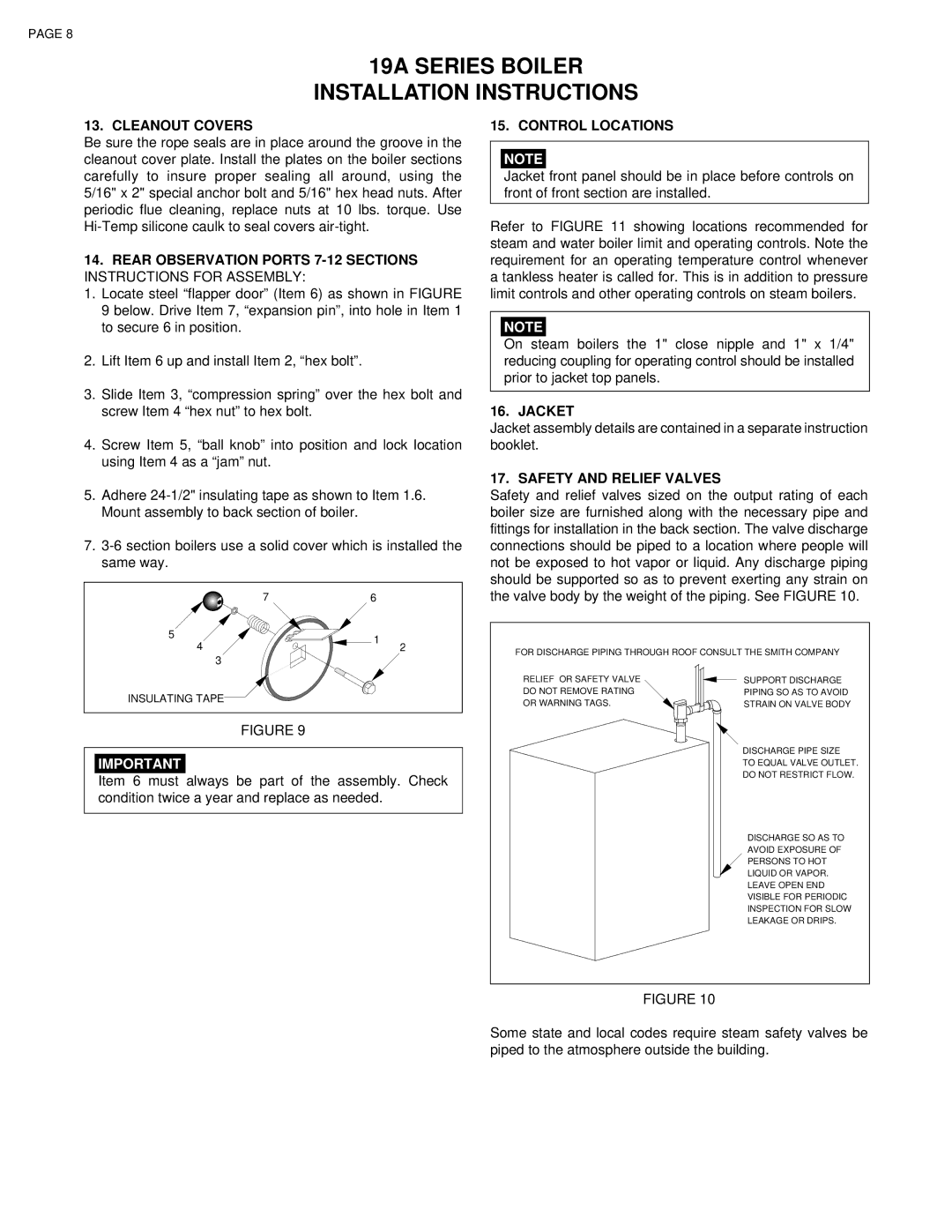19A SERIES specifications
Smith Cast Iron Boilers 19A SERIES is renowned for its durability, efficiency, and innovative technology, making it a popular choice among residential and commercial heating solutions. This series is designed to provide reliable and efficient hydronic heating, catering to various applications.One of the standout features of the 19A SERIES is its robust cast iron construction. Smith Cast Iron has a long-standing reputation for producing boilers with exceptional strength and longevity. The cast iron design not only contributes to the boiler's durability but also enhances heat retention, ensuring optimal performance over time. This quality construction helps to minimize heat loss, which is crucial for energy efficiency.
The 19A SERIES boiler is equipped with a range of technologies that enhance its performance and efficiency. A noteworthy feature is its advanced combustion system, which maximizes fuel utilization and reduces emissions. This system ensures that the boilers operate at peak efficiency, reducing fuel costs and environmental impact. Additionally, the series includes an electronic ignition system, which simplifies operation and increases reliability, eliminating the need for standing pilots and enhancing safety.
Another important characteristic of the 19A SERIES is its modular design, which allows for flexible installation and maintenance. The boilers are designed to accommodate a variety of configurations, making them suitable for different spaces and heating requirements. This versatility ensures that they can be easily integrated into existing heating systems or installed as standalone units.
Smith Cast Iron also prioritizes user-friendly features in the 19A SERIES. The boilers come with an intuitive control panel that provides clear display options for monitoring and adjusting settings with ease. This user-centric design allows homeowners and facilities managers to optimize their heating system's performance quickly.
The 19A SERIES is engineered with energy efficiency in mind, meeting stringent industry standards and exceeding most regulatory requirements. By investing in this series, users can expect significant savings on energy bills while contributing to a more sustainable environment.
In summary, the Smith Cast Iron Boilers 19A SERIES stands out for its durable construction, innovative technologies, and energy-efficient design. With its combination of reliability, user-friendly features, and flexibility, this series is an excellent choice for anyone seeking a high-quality hydronic heating solution. Whether for residential or commercial use, the 19A SERIES continues to deliver the performance that has made Smith Cast Iron a trusted name in the industry.

